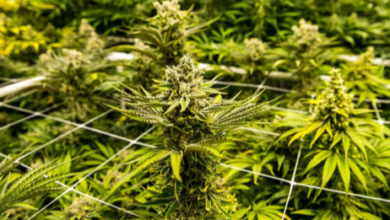Do You Have to Be 21 to Buy Cbd

The question of whether one must be 21 to purchase CBD products is complex and varies significantly across different jurisdictions. While federal regulations, notably the 2018 Farm Bill, have established a legal framework for hemp-derived CBD, state laws introduce varying age restrictions that can affect accessibility. This inconsistency raises important considerations for both consumers and retailers regarding compliance and public health. As the landscape of CBD legislation continues to evolve, understanding these nuances is essential—yet many remain unaware of the implications that these differences may have on their purchasing choices.
Overview of CBD Legislation
The legal landscape surrounding cannabidiol (CBD) has evolved significantly in recent years, creating a complex framework of regulations that varies by state and federal law.
CBD legality implications depend heavily on state-specific regulations, with some states embracing its use while others impose restrictions.
This inconsistency highlights the importance of understanding local laws to navigate the evolving CBD marketplace effectively and ensure compliance.
See also: Can You Take Cbd Oil on a Plane
Age Restrictions by State
Understanding the age restrictions for purchasing CBD is vital, as regulations vary widely from state to state, reflecting the diverse approaches to cannabis and its derivatives across the country.
State specific variations exist, with some allowing sales to those under 21, while others impose stricter rules.
These differences create enforcement challenges, complicating compliance for businesses and consumers alike.
Federal Regulations on CBD
Federal regulations regarding CBD are primarily governed by the 2018 Farm Bill, which legalized hemp-derived CBD products containing less than 0.3% THC.
This legislation established a framework for CBD legality, allowing for broader access while ensuring regulatory compliance.
Consumers should remain informed about their local laws, as variations may exist, impacting the availability and purchase of CBD products across different states.
Comparison to Alcohol and Tobacco
When considering the legal landscape surrounding CBD, it is essential to compare it with the established regulations governing alcohol and tobacco.
Both substances have age restrictions in place, typically requiring individuals to be at least 21 years old to purchase them.
Understanding these parallels can provide insights into the potential future regulations for CBD products.
Age Restrictions Overview
Age restrictions for purchasing CBD vary significantly from those imposed on alcohol and tobacco, reflecting differing regulatory approaches across substances.
While alcohol and tobacco are restricted to individuals aged 21 and older, CBD’s age limitations depend on local regulations.
This disparity emphasizes the need for clear usage guidelines, as many seek CBD for its potential health benefits without facing undue barriers.
Legal Purchase Age
Typically, the legal purchase age for CBD is not universally defined, contrasting sharply with the strict age limits of 21 years for alcohol and tobacco products.
This lack of standardization raises important legal implications and necessitates robust age verification processes.
As consumers advocate for greater accessibility, understanding these differences helps navigate the evolving landscape of CBD regulation while promoting personal freedom and responsibility.
Exceptions to Age Limits
Certain jurisdictions may allow individuals under the age of 21 to purchase CBD products with parental consent or for medical purposes, reflecting the varying regulations across different regions.
These exceptions often aim to promote youth education about the health benefits of CBD, ensuring that young individuals can access potential therapeutic solutions while encouraging responsible usage under adult guidance.
How to Verify Your Age
Verifying age is crucial for compliance with government regulations surrounding the purchase of CBD products.
Various methods are employed to confirm the age of consumers, ensuring that only those who meet the legal age requirements can access these products.
Understanding these verification processes is essential for both retailers and consumers.
Government Age Regulations
Many retailers require customers to present valid identification to confirm their age before purchasing CBD products, ensuring compliance with government regulations.
These measures are crucial in upholding government policies aimed at limiting youth access to potentially harmful substances.
Age Verification Methods
To ensure compliance with age restrictions, retailers commonly implement a variety of age verification methods that effectively confirm a customer’s eligibility to purchase CBD products.
These methods include online age verification systems, which utilize databases to cross-check age credentials, and biometric identification, which employs physical characteristics to authenticate identity.
Such measures enhance security while respecting consumer freedom in the marketplace.
Consequences of Underage Purchase
Underage purchases of CBD can lead to significant legal consequences for both the buyer and the retailer involved.
Minors may face legal penalties, including fines or community service, while retailers risk losing their licenses and facing substantial fines.
Furthermore, the health risks associated with unsupervised consumption of CBD can jeopardize young individuals’ well-being, reinforcing the importance of age restrictions in the market.
Future Trends in CBD Laws
The evolving landscape of CBD laws reflects a growing recognition of the need for regulatory frameworks that balance consumer safety with market accessibility.
As emerging markets expand, lawmakers are increasingly focused on establishing clear guidelines that promote responsible usage while enhancing consumer education.
This shift aims to empower individuals to make informed choices, fostering a more transparent and equitable CBD marketplace for all.
Conclusion
In conclusion, the age requirement for purchasing CBD varies widely across states, influenced by local regulations despite federal legalization under the 2018 Farm Bill.
This inconsistency raises the question: how can consumers navigate the complex landscape of CBD laws effectively?
Awareness of state-specific regulations and age verification processes is essential to ensure compliance and protect public health.
As the CBD market evolves, ongoing monitoring of legislative changes will be crucial for both consumers and retailers.




